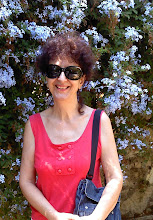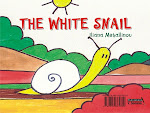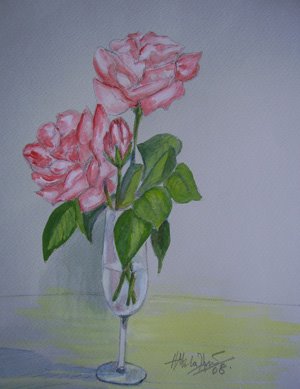It is my honour to present a Greek -American author this month.
Pauline Hager is certainly unique in the topics she has chosen and the skilled way she has crafted them. Her latest book,
"Giorgi's Greek Tragedy"
is as captivating as her previous one, a memoir set in Japan. Enjoy!


"Giorgi's Greek Tragedy" tells of The Ottoman Turkish Empire's occupation of Greece from 1453 to 1829. Agents of the sultan's elite Janissary Corps murder Giorgi's parents. Seeking revenge, he joins the outlawed Greek freedom fighters. A tragic tale of his revenge ensues. The setting for this historical novel, 1790-1829, takes place in the rugged mountains of the Peloponnese Peninsula of Southern Greece. Ensconced in deep caves, the fighters live and train to battle the Turks. Far below in the valleys, overtaxed and overworked peasants toil in the fields. The story comprises the lives of three generation of a family and of the cruel treatment inflicted upon them by the Turks. Love of family, love between a man and woman, and Giorgi's love of country are recurring themes in this poignant tale.
------------------------------------------------------------------------
Pauline Hager talks to Liana Metal about her first book, Memoirs of an American Housewife in Japan.
L: How and when did you get started as a writer?
P: I started writing short mystery stories when I was about ten or eleven years old. My favorite writer was Caroline Keene, author of the Nancy Drew mystery books. I was so intrigued with her mysteries that I was motivated to write my own stories. Of course, nothing became of them, but the seed was firmly planted in my mind. Almost 50 years later, the dormant seed sprouted and my first book Memoirs of an American Housewife in Japan was published.
L: How do you usually find your ideas?
P: Believe it or not, my best ideas come to me while I’m getting ready for bed. Sometimes when I’m just dropping off to sleep, a sudden thought races through my mind and jolts me awake. I’ve learned to keep paper and pencil by my nightstand.
L: Did you ever get any rejections?
If yes, how did you react to them?
P: Oh, yes, yes, many. At first I felt dejected and depressed. In fact with my first rejection letter, I didn’t know what the publisher meant when he wrote “Sorry, nice writing but your story is not a good fit.” A good fit for what? I wondered. I guess because I’m a Taurus, I kept at it and persevered under the weight of all those rejection slips.
L: Tell us about your books. What was your first one?
P: My
 first book, Memoirs of an American Housewife in Japan, tells about my two and one-half years living in Japan. My husband was offered a position to join a multinational project in Japan. We talked it over and he accepted, not knowing what the future held for us. We lived in a small town about 75 miles northwest of Tokyo. My neighbors were from the European Union, Russia, Canada, Japan and America. I was completely ignorant of Japanese social behavior and committed many faux pas, especially when visiting the homes of my newly-acquired Japanese friends. Life in Japan was a challenge. Many things were so different from what we were accustomed to in the states, but with the help of our Japanese and fellow expatriate friends, we prevailed.
first book, Memoirs of an American Housewife in Japan, tells about my two and one-half years living in Japan. My husband was offered a position to join a multinational project in Japan. We talked it over and he accepted, not knowing what the future held for us. We lived in a small town about 75 miles northwest of Tokyo. My neighbors were from the European Union, Russia, Canada, Japan and America. I was completely ignorant of Japanese social behavior and committed many faux pas, especially when visiting the homes of my newly-acquired Japanese friends. Life in Japan was a challenge. Many things were so different from what we were accustomed to in the states, but with the help of our Japanese and fellow expatriate friends, we prevailed.L: What inspired you to write this book?
P: So many friends and relatives asked me “Is Japan as beautiful and mysterious as the travel brochures claim?” The answer is both yes and no. There are so many misconceptions about Japan. I thought I had better set the record straight by writing about my own experiences and let readers decide.
L: How long did it take you to write it?
P: It took me about a year to write the book. I had no notes, no diary, nor letters sent home to remind me. The experiences just kept popping in my mind, and at times it seemed like I couldn’t type fast enough to get them on paper, so to speak. It was like reliving my life in Japan all over again. Strangely enough I don’t think I could write that book today. After ten years, the memory is fading, but not forgotten.
L: What are the major challenges that you have faced in your career?
P: My main challenge now is to convince American publishers that the readership in this country would accept a historical novel about Greek freedom fighters fighting against the Ottoman Empire. The Ottoman Turks occupied Greece for four hundred years. I’ve had several agents and publishers write and say that frankly they’re not interested in the subject matter and it would be a hard sell. Since I’m a stubborn Taurus, I refuse to give up.
L: Has the Internet helped you in your writing career?
How?
P: The Internet has been a great source of information for my project. It saves me precious time from having to go to the library or to a bookstore; not that I haven’t done both. I’ve also meet on-line some knowledgeable people who have been very helpful and encouraging.
L: What do you advise new writers to do?
P: Write as often as you can, preferably every day even if it’s just a few lines. Those few sentences eventually add up into a best seller. I also find it helpful to read all kinds of genres regardless of their subject. When you’re not writing, read. Find an author whom you admire. Don’t copy her, but learn from her style, be yourself and write. Join a reading group or subscribe to a literary magazine. I can never emphasize enough to write, write, write and to read, read, read. If you find that enjoyable and rewarding, then you know you want to be a writer.
Good luck Pauline!







